I tried the OnePlus Watch 2 Nordic Blue – it's changed my mind about smartwatches
Hiking, biking, sauna hot and Baltic cold, the new OnePlus Watch 2 special edition is a great Android partner. Here's why:
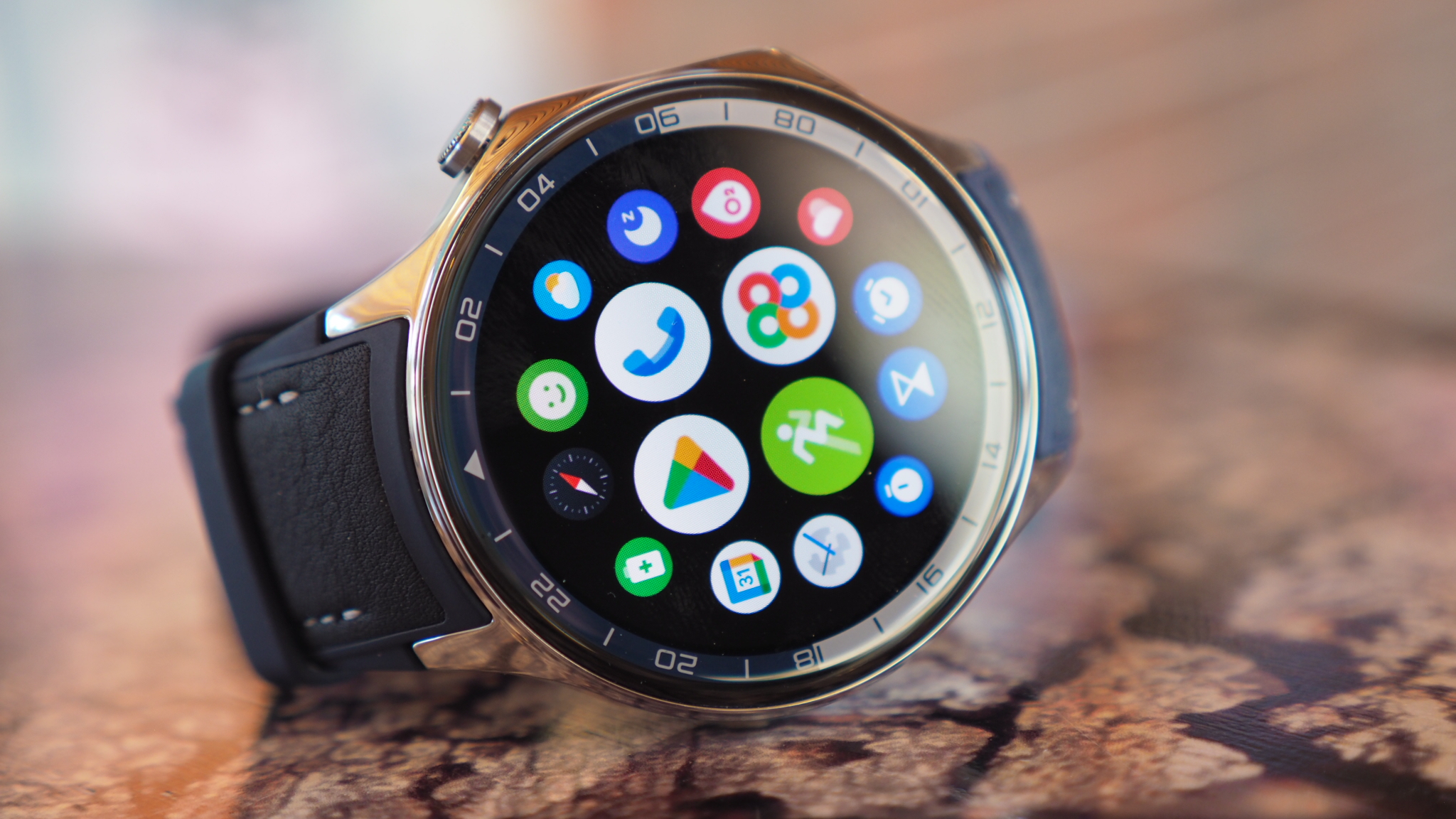
There was a sprinkling of snow falling onto the runway as I landed at Helsinki, to attend the launch of the OnePlus Watch 2 Nordic Blue Edition. Well, more than a sprinkling: it was enough to cause the train and tram network in Finland's capital to close temporarily – but that wasn't going to get in the way of testing this new wearable.
Over the course of a couple of days, I've worn the OnePlus Watch 2 for a variety of reasons: to monitor heart rate, to record sleep, to engage in biking, hiking, sea swimming and other activities. And y'know what? With this new Nordic Blue Edition design aesthetic, these two days have been enough to change my mind about smartwatches.
Not that I'm anti-wearable, of course. It's just I find the minimal battery life of the Apple Watch to be off-putting (I'm generally a user of the best Android phones anyway) and, having worn a variety of cycling smartwatches, I've often found the bulk, so-so GPS monitoring, and general wear-feel to be subpar. Well, the OnePlus Watch 2 has impressed for these five key reasons:
1. All the activities
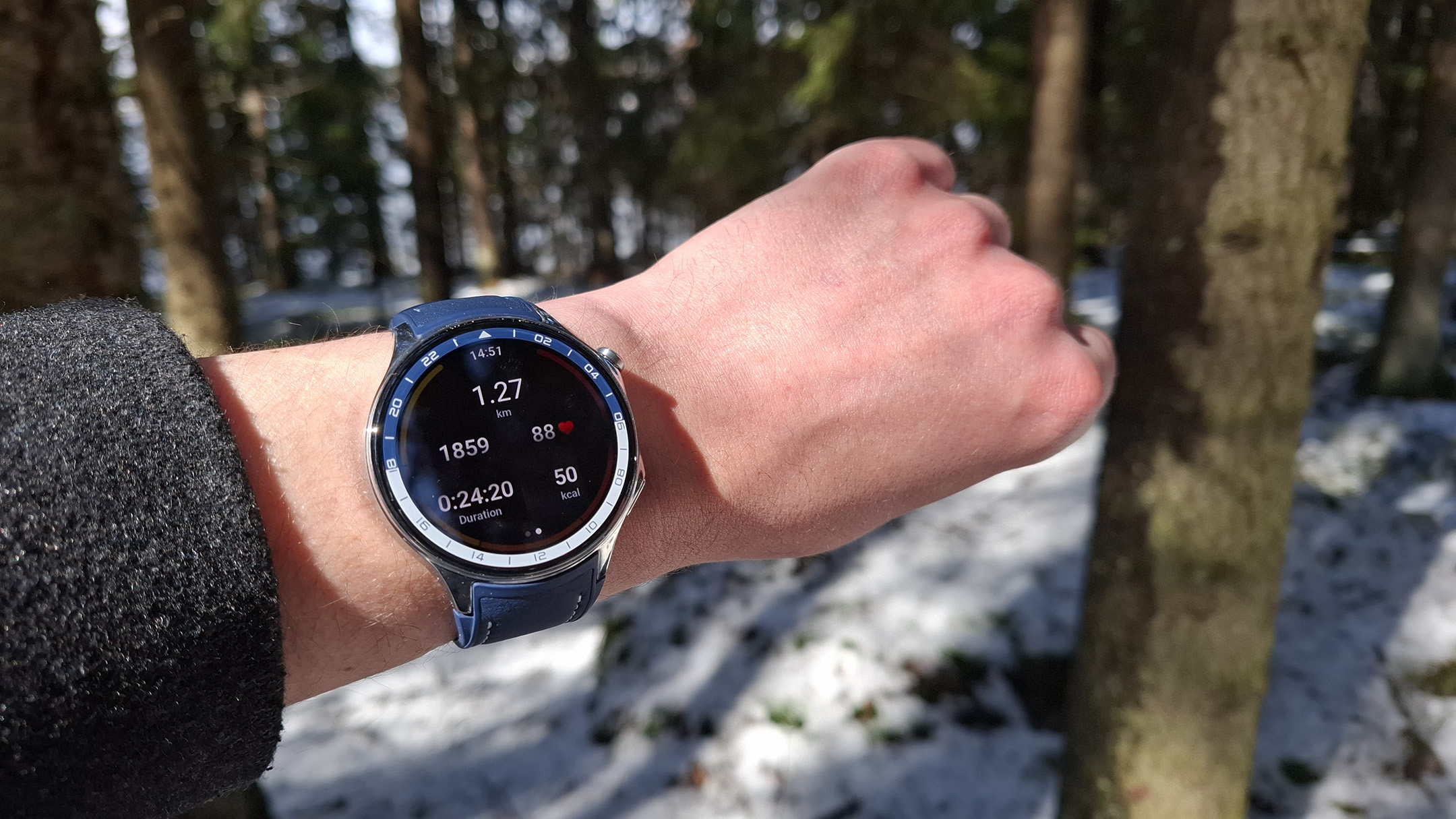
Built into the OnePlus Watch 2 are 16 activity types. And while that may be nothing special – although the wearable can auto-select and auto-start based on your motion – one thing this smartwatch does offer that many lack is a dual GPS system, meaning more accurate tracking while in less trackable locations.
Which is precisely what I did in Helsinki: away from the city centre, out in the woods, hiking and 'fat biking' through the countryside, the Watch 2 was able to quickly lock onto my location for tracking purposes, and continue to do so throughout each session.
The OHealth app syncs with your Android device to transmit the data, too, so you can quickly and easily monitor your health: from heart rate to steps, sleep to SpO2, distance/steps to stress level. You can't sync with an iPhone, though, as this is strictly Android only.
2. Weather resistant, hot and cold
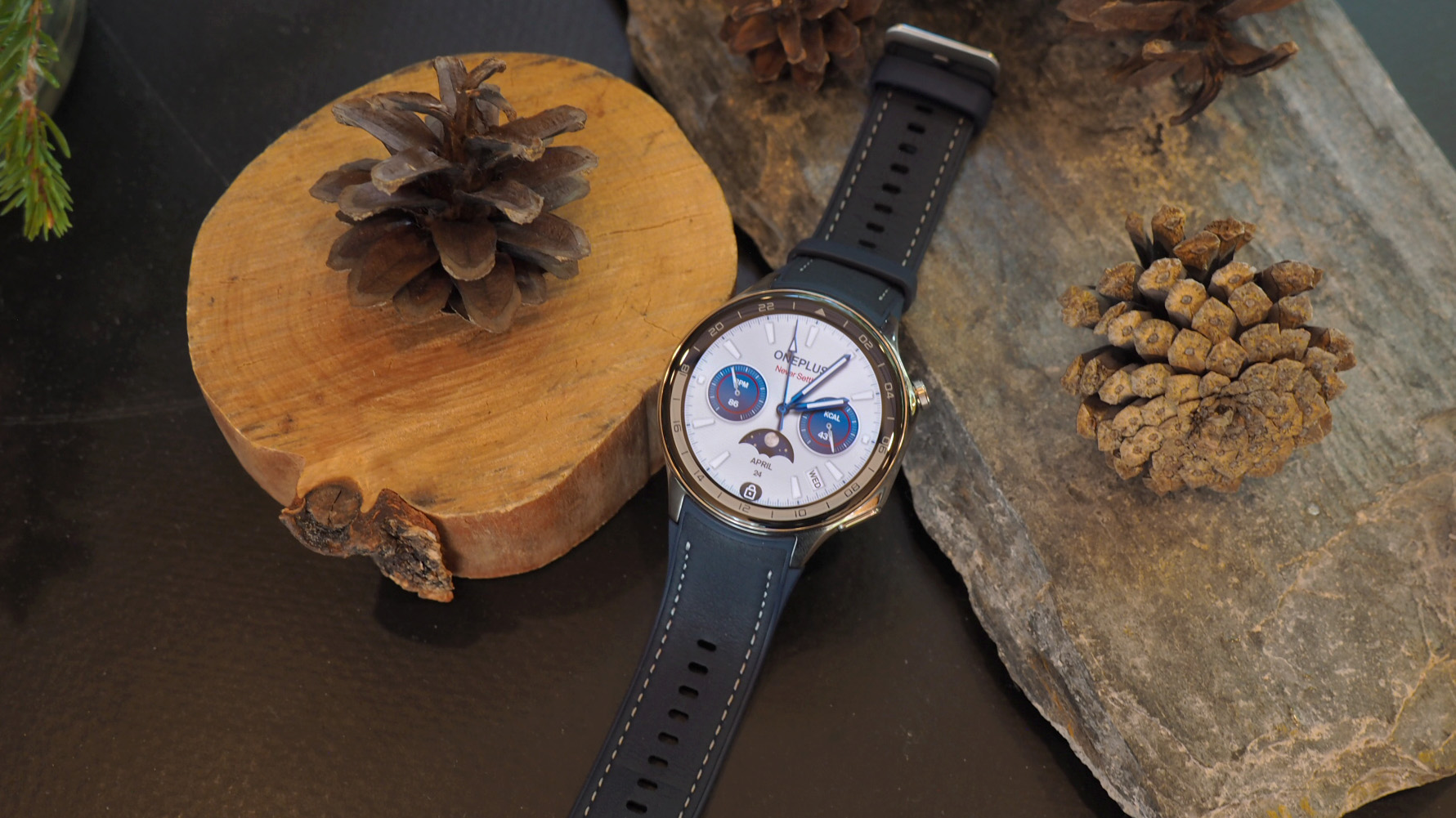
From the icy woodlands to the cold Baltic seafront: my next stop in this off-the-beaten-track adventure was to a traditional Finnish sauna. Once inside, with the temperature above 80°C, the Watch 2 had no trouble continuing to track – as my heart rate slowly increased in tandem with my rising body temperature.
Get all the latest news, reviews, deals and buying guides on gorgeous tech, home and active products from the T3 experts
As is tradition, following a 15-minute stint in the heat, it was time to get into the almost-freezing water of the Baltic sea. My body was more shellshocked than the OnePlus wearable: but I had no reason to remove the watch, thanks to its IP68 rating, meaning protection against water to 1.5m of depth for half an hour.
Officially the Watch 2 is designed to operate between -20°C and 55°C, so I managed to push it beyond official limits during this test, and it didn't break a sweat (whilst I did). However, the leather-coated fluororubber band does advise cleaning after to avoid deterioration, which doesn't sound like a perfect match-maker.
3. Battery life brilliance
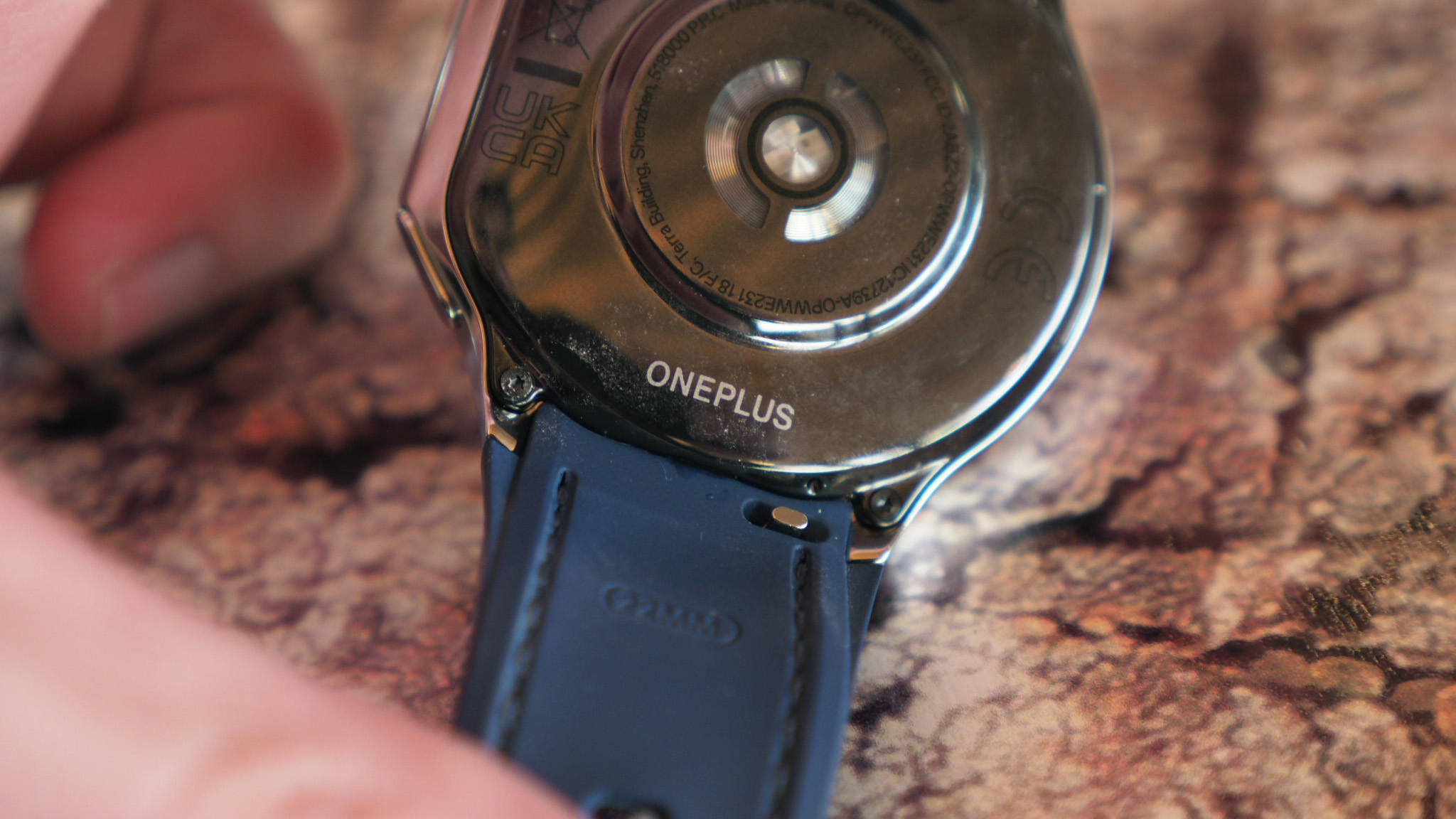
In terms of battery life, the OnePlus Watch 2 quotes up to 100 hours per charge. But that would mean using 'smart mode' – and I just don't think people are likely to use that more limited function.
I've been wearing the Nordic Blue watch (in 'normal mode') for 26 hours nonstop at the time of writing – and it's dropped by roughly 50% battery in that time. That's a fantastic innings though – especially given the connection to my Android phone, the number of activities recorded over a number of hours, the sleep tracking, and more.
Impressively, a quick plug-in at the charger gave me 12% more battery life in literally 10 minutes – thanks to OnePlus' VOOC charging, which activates if you're using a 65W charger at the plug (note: that's not included). OnePlus claims a full charge to 100% can be achieved in an hour, best case scenario, which is speedier than some wearables.
4. A perfect Android partner
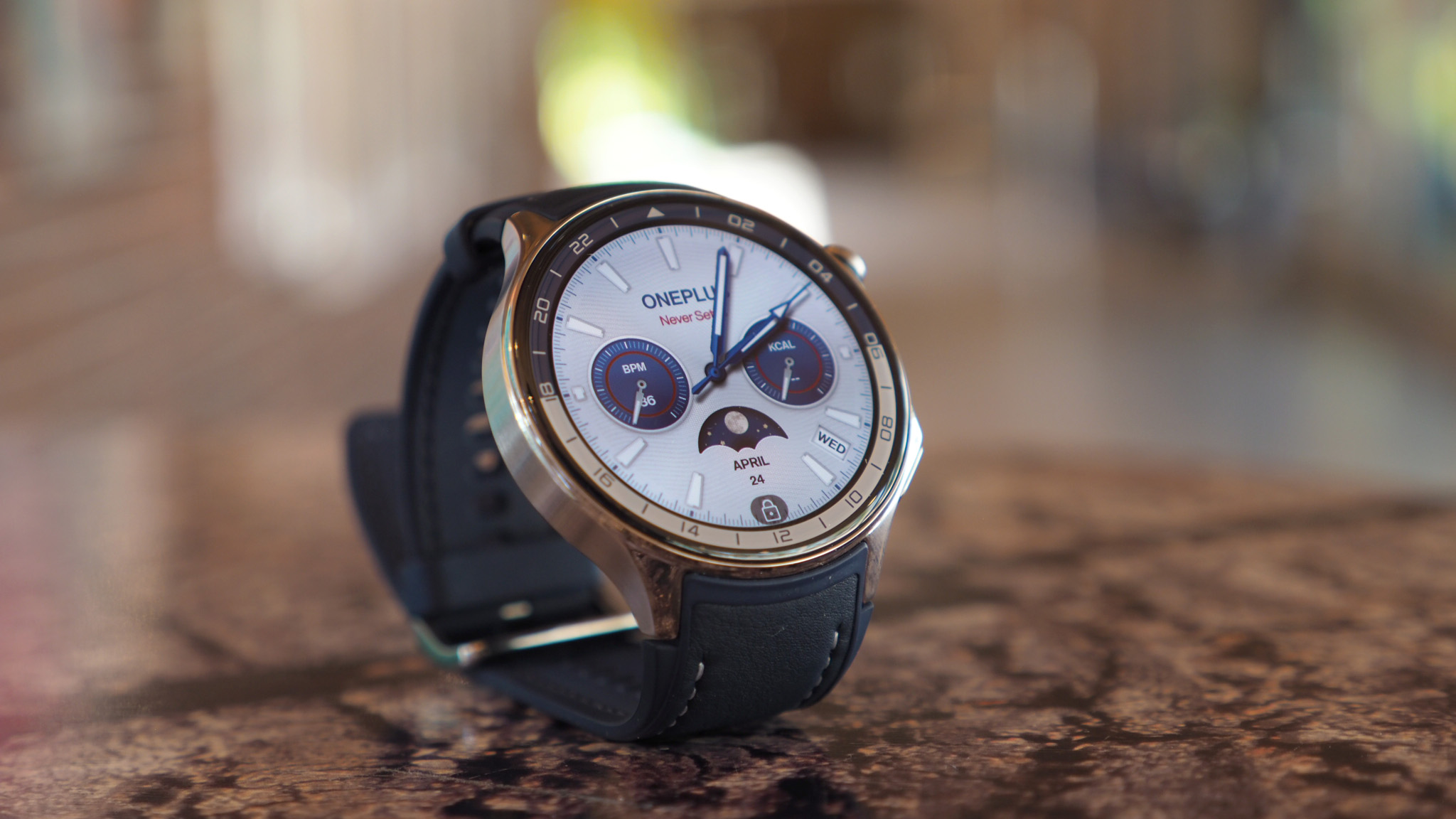
Using the OnePlus OHealth app, I paired my Watch 2 with my phone to open up a pool of Android apps – without the need to install more on either device, you only need give permissions access.
So I was able to glance at WhatsApp messages during my biking and hiking sessions. But you're in control, as terminating the connection means you needn't be distracted by your Gmail inbox if you don't wish.
I don't want to turn into that always-glancing-at-my-watch guy, but knowing that a wearable can cater for health and activities, plus Android connectivity, means I'm going to continue wearing the Watch 2 on my wrist for all eventualities.
5. Nordic Blue design special
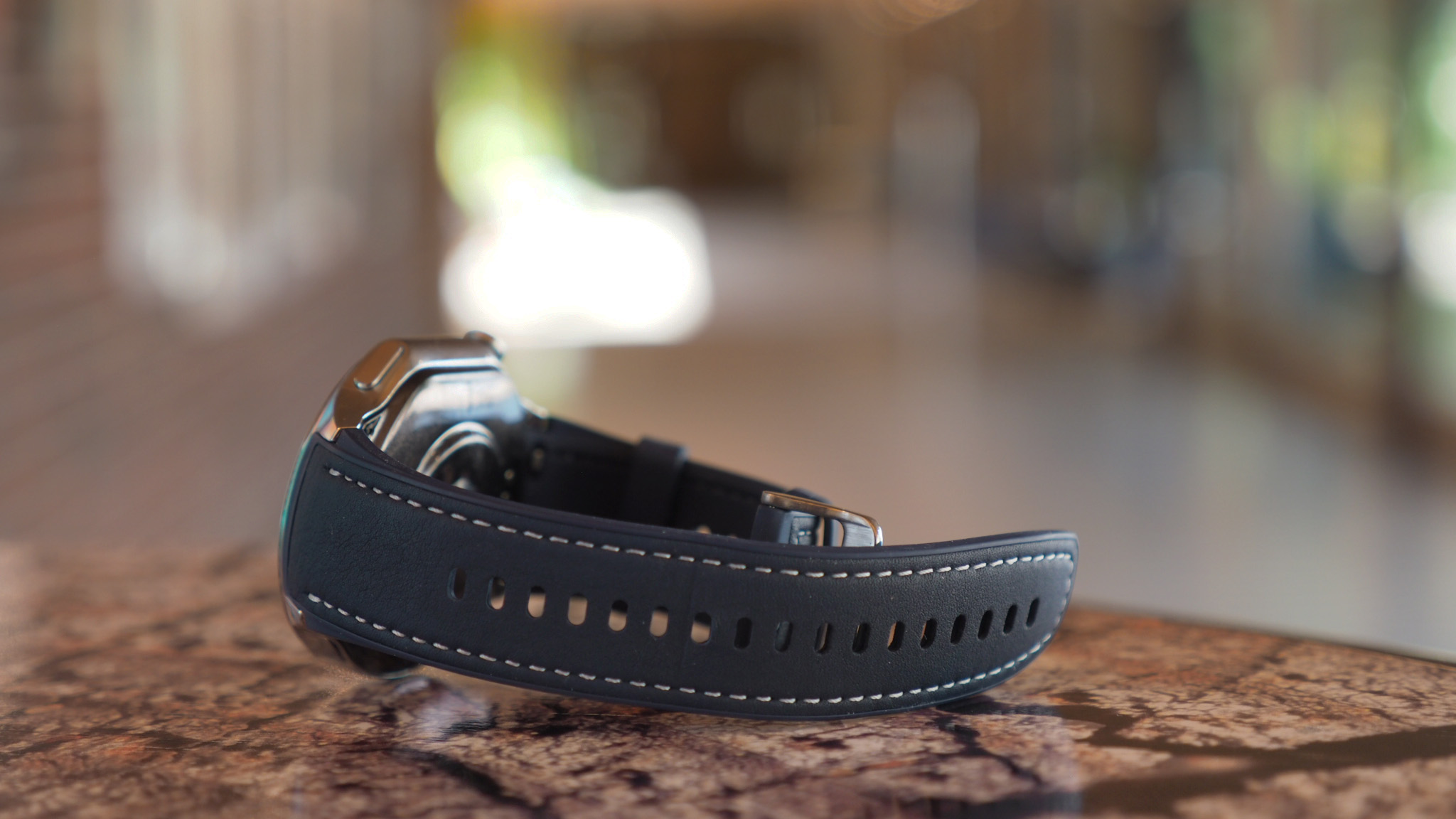
So what's the difference between the OnePlus Watch 2 and the Nordic Blue Edition? Internally there's nothing at all: you get the same dual processor and 500mAh battery, the same dual GPS system, the same 47mm watch face and 1.43in screen diameter.
The Nordic Blue version is only going to sold in Europe, not wider market, and its differences are purely aesthetic. Oh, and it's also a little pricier: £329 means that special edition finish and specific included strap are around £30 more than the 'standard' OnePlus Watch 2 in black or green finishes.
While it's a large watch overall, and some will find it too heavy for activities, I've thus far enjoyed wearing the Watch 2 – and found it no bother at night either. My 7 hours and 4 minutes of Nordic sleep on night one was a welcome surprise – more than my usual – but goes to show how apparently comfortable I am with this smartwatch.
Having loved the OnePlus Open – the best folding phone money can buy – it seems that OnePlus is rubbing off on me. The OnePlus Watch 2 Nordic Blue Edition, somewhat unexpectedly, has changed my mind about Android Wear OS devices for the better.

Mike is T3's Tech Editor. He's been writing about consumer technology for 15 years and his beat covers phones – of which he's seen hundreds of handsets over the years – laptops, gaming, TV & audio, and more. There's little consumer tech he's not had a hand at trying, and with extensive commissioning and editing experience, he knows the industry inside out. As the former Reviews Editor at Pocket-lint for 10 years where he furthered his knowledge and expertise, whilst writing about literally thousands of products, he's also provided work for publications such as Wired, The Guardian, Metro, and more.
